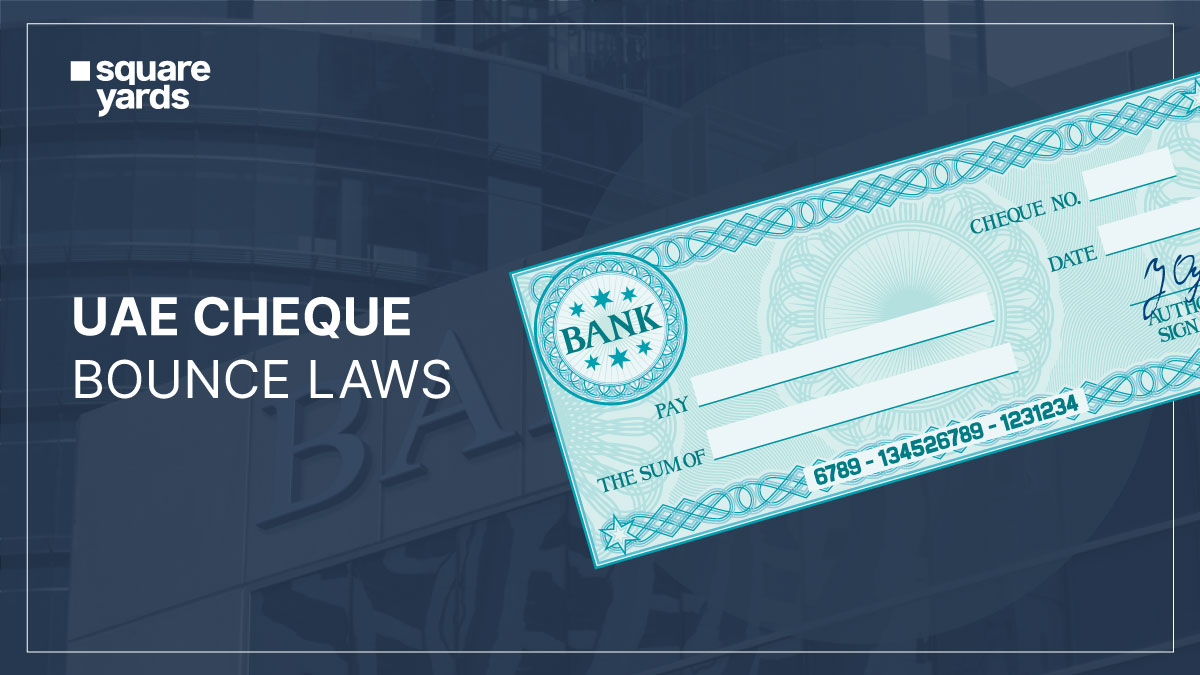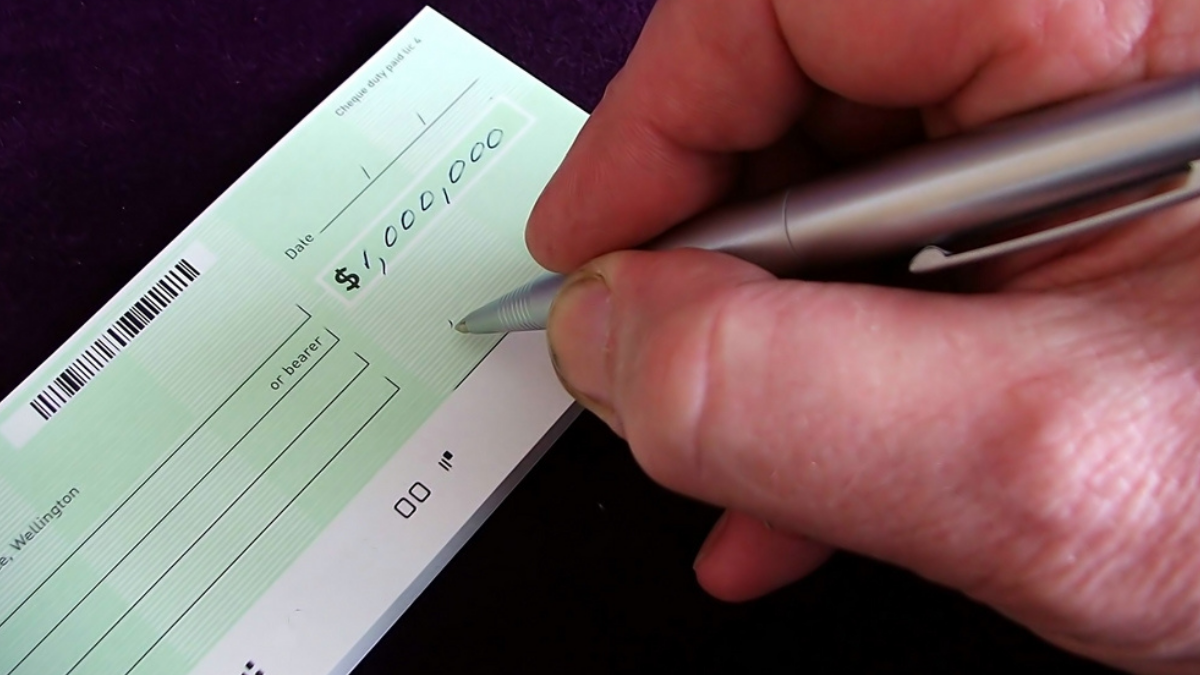Recently, a new bounced cheque law in UAE was implemented that amends previous laws governing returned or bounced cheques. One of those changes includes decriminalising the cheques that are issued without sufficient funds. Let’s scroll down to have the after-before overview of the amendments and see how they impact landlords and tenants.
Bounced Cheque UAE Before the Amendments
A bounced cheque once used to be a criminal offence in the UAE, according to the emirate’s laws. As per the UAE Penal Code under Article 401, the dishonoured cheques were penalised in terms of fines and jail time.
Here is a similar case of leasing a landscape in Dubai while it’s still in effect:
If the tenant’s cheque is dishonoured, a landlord is allowed to approach the police station to file a criminal complaint against the tenant. Following that, the police summon the check drawer, i.e., the tenant, to settle the amount at the police station. If the amount isn’t settled in the police station, the matter could also be taken to courtIf still the settlement doesn’t happen, the police could also file a case against the tenant and uphold it to the criminal court or the public prosecutor. This is where criminal liability is identified, and detention or fine is imposed. So that is how the cheque bounce process used to be.
New Bounced Cheque Law in UAE After the Amendments
The new bounced cheque law in UAE considers a cheque without sufficient funds as a civil offence. Following the latest bounced cheque amendments in the UAE, the partial payment of the cheque has now become mandatory. The amendments introduced aim to promote sober settlements between two parties; the landlord and the tenants. Eventually, new rules have redressed what is considered a criminal offence in commercial transactions, including bounced cheques, meanwhile decongesting the emirates judicial system. The most recent amendment expressly states that the previous rule of filing a case against the cheque drawer should be avoided. This new equation is a bit friendlier and removes the ensuing procedures of approaching the police in order to register a criminal offence case.
Rather than fussing in any court case, the new amendment simply allows a cheque bearer to present the bounced cheque. By presenting a bounced cheque, a bearer can directly request to pay the remaining amount in question. Following the above steps, banks also release the available funds in the drawer banks to benefit the cheque bearer until the beneficiary denies the partial payment. It is to underline that fraud or bad faith cheque bounce cases will still be considered a criminal offence. For instance, forgeries, falsifications, and dishonest practise are averting cheque encashments.
How Does a Cheque Bounce Affect Tenants and Landlords?
There are about 8.89 million ex-pats living in the UAE, which is almost 89% of the total population. And a majority of these ex-pats live in rental properties. As a result, the check has become the most secure and convenient method for tenants to pay the landlord. Thus, it is pretty understandable that cheque laws are always a hot topic for both tenants and landlords. Therefore, when it comes to tenancy, PDCs (Post Dated Cheques) are the most common payment mode used by the tenants. This payment method allows tenants and landlords to begin with little effort. Meanwhile, it ensures the transaction of a large payment over time. The PDCs allow tenants to split the annual rent into multiple cheques instead of paying the yearly rent in a single go in cash. The PDC is a customary procedure for landlords to take the entire rent in advance in the form of cheques.
Tenants appreciate checks because they allow them to pay their entire rent in advance without incurring any financial burden. The post-dated cheque doesn’t technically release the amount until the date given on the cheque. For landlords, a cheque is a piece of rent security as they ensure the yearly payment of their rented property. Thus, it is important for tenants and landlords to beware of the cheque laws in the UAE. In contrast to previous laws, landlords are not permitted to file a criminal offence case against the bounced check drawer. And similar is the case with the tenants; they are required to follow the partial payment rule in order to avoid falling into bad faith.
In Conclusion
The UAE is an ever-evolving country in terms of tourism, IT, healthcare, and other essential sectors. Thus, the country entertains ex-pats from all over the world who rent a residence to make their stay comfortable. However, renting a place isn’t the last step to step in your comfort, but you must always beware of the new bounced cheque law in UAE to prevent any criminal offence case against you. The check laws do not only apply to residential tenants but also commercial lease tenants and their landlords.
Frequently Asked Questions (FAQs)
Decriminalisation of the cheques is to be issued if they are without sufficient funds. In forgery, bad faith, fraud, insufficient funds, and bounced cheques will be criminalised.
As per Article 638/1 of UAE Commercial Law Federal, The validity of the bounced cheque in UAE is set 2 years from its expiry date.
Except for those issued in bad faith, cheque bounce is claimed as a decriminalised offence in the UAE beginning in January 2022.
As per the Penal Order Dubai, the cheque bounce offenders are to be fined instead of being them to court. If the cheque worth Dh50,000 bounces, the offender must pay Dh2,000 as a fine. If a cheque is worth between Dh50,000 and Dh100,000 bounces, the offender will be fined Dh5,000.
o limit the scope of criminalisation, the UAE has made some changes to check bounces in the country. The new amendment simply allows a cheque bearer to present the bounced cheque; by presenting a bounced cheque, a bearer can request to pay the remaining amount in question.
If you have filed a false cheque bounce case, you can file a counter case in the court against the contrary party. With the help of a lawyer, you can reply to the counter file of the cheque against the person who has fouled a false case on you.
A magistrate could take cognisance of an offence in dishonouring the cheques.
The bail under the cheque bounce case is a matter of the accused’s rights because it is a bailable offence. Thus, the accused person is required to provide a bail application via their lawyer along with the required securities, according to the judicial magistrate. What happens when a cheque bounces in the UAE?
How long does your record show a bounced cheque?
Is a cheque bounce considered a criminal offence in the UAE?
Is there any fine charged for a cheque bounce in the UAE?
What is the new rule for a cheque bounce in the UAE?
How can I escape a cheque bounce case?
Is cheque bounce a non-bailable offence in UAE?
How can one get bail under a cheque bounce case?






